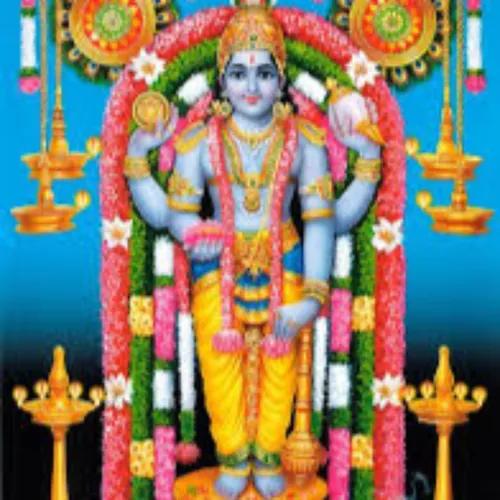Dashakam 11 Entry of Sanaka into Vaikuntam
- Author
- Santana Dharma The Life
- Published
- Sat 09 Aug 2025
- Episode Link
- https://podcasters.spotify.com/pod/show/santana-dharma-the-life/episodes/Dashakam-11-Entry-of-Sanaka-into-Vaikuntam-e36l8kn
Here in this episode, it primarily signifies the birth of the demon brothers Hiranyakashipu and Hiranyaksha, who are important figures in Vaishnava mythology and represent beings born as adversaries of Lord Vishnu. According to this Dashakam, the attendants of Lord Vishnu, Jaya and Vijaya, were cursed by the sages to be born as Asuras (demons) due to their misdeeds, resulting in their births as Hiranyakashipu and Hiranyaksha in their cycles of birth. Despite their curse, they chose the option to return to Vaikuntha (the divine abode) after three births.
This Dashakam narrates the initial events related to these birth stories, highlighting the divine and cosmic interplay of curses, births, devotion, and destiny. It portrays how the Lord, along with Goddess Lakshmi and Garuda, intervenes to give joy to the sages and how Hiranyaksha, with pride, challenges the cosmic order by drowning the earth goddess in water. The chapter is significant for illustrating the continuing cosmic drama of good versus evil, the consequences of divine curses, and the cyclical nature of birth and cosmic order maintenance.
Thus, Dashakam 11 deepens the narrative of creation by introducing the emergence of significant antagonistic figures and the divine lila (play) that entails their birth and actions in the cosmic cycle, continuing the themes of creation, preservation, and destruction central to Narayaneeyam
Namaskarams and Dhanyavadaha to Smt Savithri Ramesh and Smt Asha Murarka for their help.
